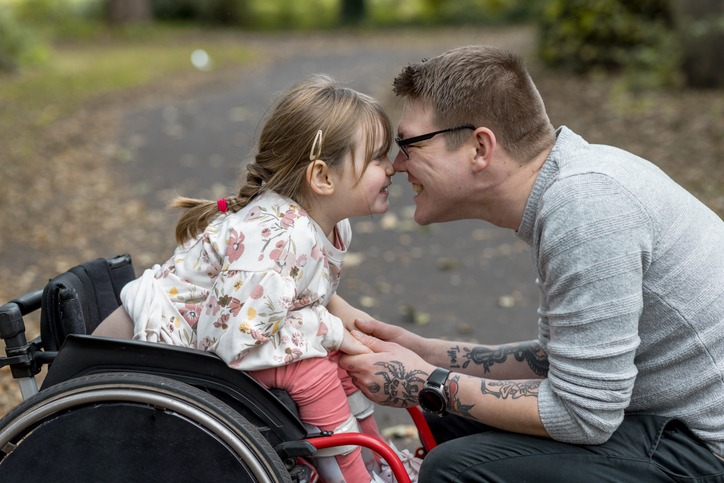In a high-conflict divorce, where every decision that must be made to legally separate a married couple’s future becomes a vicious battleground dragged out through endless court hearings, the stress and uncertainty weigh on everybody involved. The damaging effects can have a lasting impact on even the most mentally healthy adult.
However, when such a divorce involves a custody dispute over a child who has a serious mental health issue, the stakes become even higher. Will the legal process of deciding who should have legal and/or physical custody of the child exacerbate their mental illness? And how can the court determine who will be best suited to support the child’s mental health when the parents can’t find any common ground?
As with any child custody case in California, a high-conflict court case involving a child with mental health issues will be focused on determining custody arrangements that are in the child’s best interests. The court will scrutinize each parent’s ability to provide stability and effective support to the child, relying heavily on assessments by mental health professionals to come to a decision. The assistance of a family law attorney experienced in high-conflict divorce and contentious custody disputes is essential to navigating this complex process and ensuring the court has the information necessary to make a fully informed judgment.
- What Factors Matter for Custody When a Child Has a Mental Illness?
- The Voice of Mental Health Professionals in Custody Disputes
- Possible Custody Outcomes when a Child Has Severe Mental Health Issues
Need help in protecting your children’s future?
What Factors Matter for Custody When a Child Has a Mental Illness?
California Family Code § 3011 lists factors the court must consider in determining the best interests of the child in a custody proceeding, starting with “the health, safety, and welfare of the child.” The needs of a child with a serious mental health condition will be more demanding and more specific than those to be considered in typical custody cases.
For instance, they may be prescribed medication that must be taken consistently, need access to certain mental health providers or facilities, or have great difficulty transitioning between different environments. The ability of each parent to care for the child is likely to take on a greater weight than other factors often weighed in custody decisions (such as the age of the child or their ties to their school or community) because a lapse in effective mental health treatment can pose a risk to their health and safety.
The Voice of Mental Health Professionals in Custody Disputes

In a high-conflict custody dispute, the court may appoint a child custody evaluator to provide an impartial assessment of the situation and a recommendation for a parenting plan that prioritizes the best interests of the child. According to California Rules of Court 5.225, that evaluator will be a mental health professional such as a psychiatrist, psychologist, licensed marriage and family therapist (LMFT), clinical social worker, or professional clinical counselor who has completed the specified training, education, and experience requirements set out in the rule. Their findings will be presented in a confidential report to the court.
A child custody evaluator conducts a comprehensive investigation, which can include having both parents undergo psychological examinations as well as the child. They will review previous records related to the child’s diagnosis and treatment history. The parents’ ability and willingness to understand and manage their child’s mental health needs will take a central role in their assessment.
For example, a child custody evaluator will want to see that the parent works effectively with the child’s therapists and other health care providers, can provide a stable home environment that helps manage the child’s mental health needs, and works necessary accommodations for those needs into their daily routines. They will also scrutinize whether the parents can work together put aside their differences and prioritize their child’s mental healthcare and well-being.
Even in a situation where parents can get along, a custody evaluator may find that a typical joint custody arrangement is not appropriate for a child with severe mental health issues, based on the specific circumstances of the case. In high-conflict custody disputes, where ongoing parental disagreement may lead to disruptions or delays in care, it can be less likely that the court will find joint custody to be in the child’s best interests.
Possible Custody Outcomes When a Child Has Severe Mental Health Issues
As in any custody case, the court has a range of options in awarding custody when a child has serious mental health issues. California has two kinds of custody, physical and legal (the authority to make decisions regarding a child’s health, education, and welfare). Either can be shared or awarded solely to one parent, based on what the court considers to be best for the child.
In the case of a child with a severe mental illness, moving back and forth between households, especially if it makes it harder to attend therapy appointments or attend a specialized school, may not be appropriate. In such situations, the court may give one parent sole physical custody, with some visitation being granted to the other parent. If the custody dispute is contentious, the court may be more likely to award legal custody to one parent rather than trying to rely on the parents’ ability to cooperate, especially if one parent has been obstructive or unwilling to acknowledge the child’s mental health struggles in the past.
In extreme cases, California law gives the court the option to award custody to neither parent, instead allowing them to grant custody “[t]o any other person or persons deemed by the court to be suitable and able to provide adequate and proper care and guidance for the child.” Decisions on custody will always be made based on what is best for the child. Parties concerned that their ex will attempt to paint an incomplete or inaccurate picture to influence the court’s decision on custody in a way that could harm their child’s mental health are strongly advised to enlist the aid of an experienced family law attorney.
Safeguarding Your Child’s Mental Well-Being in Silicon Valley
If you’re going through a high-conflict divorce, you’re undoubtedly trying to shield your child from the immediate chaos, especially if they have a severe mental health condition. But the custody decision that results from your case can have much more serious implications for their long-term well-being.
The expert attorneys at Hoover Krepelka can help protect their future, using every legal tool at our disposal to ensure the court has the information it needs to make a decision that is truly in your child’s best interests. To schedule your consultation, fill out the form below today.
———————————————————————————————————————————————————————
Contact Us
"*" indicates required fields


